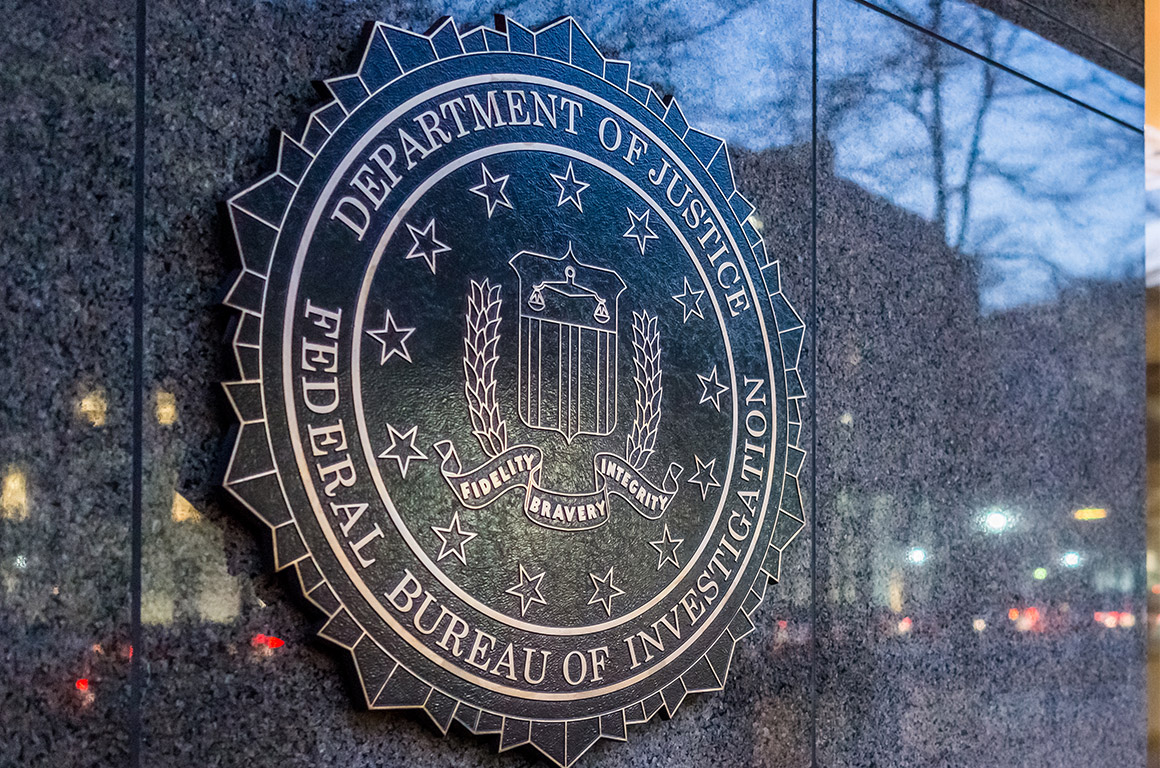Privacy and Surveillance
FBI v. Fikre
Whether the government can overcome the voluntary cessation exception to mootness by removing an individual from the No Fly List when the government has not repudiated its decision to place him on the List and remains free to return him to the List for the same reasons and using the same procedures he alleges were unlawful.
Status: Ongoing
View Case
Learn About Privacy and Surveillance
Featured
U.S. Supreme Court
Apr 2022
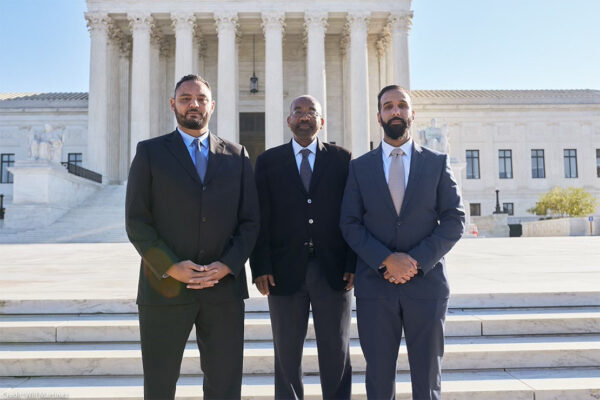
Privacy and Surveillance
+2 Issues
FBI v. Fazaga
In a case scheduled to be argued before the U.S. Supreme Court on November 8, 2021, three Muslim Americans are challenging the FBI’s secret spying on them and their communities based on their religion, in violation of the Constitution and federal law. In what will likely be a landmark case, the plaintiffs — Yassir Fazaga, Ali Uddin Malik, and Yasser Abdelrahim — insist that the FBI cannot escape accountability for violating their religious freedom by invoking “state secrets.” The plaintiffs are represented by the Center for Immigration Law and Policy at UCLA School of Law, the ACLU of Southern California, the American Civil Liberties Union, the Council for American Islamic Relations, and the law firm of Hadsell Stormer Renick & Dai.
All Cases
35 Privacy and Surveillance Cases

Court Case
Aug 2017
Privacy and Surveillance
Raza v. City of New York - Legal Challenge to NYPD Muslim Surveillance Program
The ACLU, the NYCLU, and the CLEAR project at CUNY Law School filed a lawsuit in June 2013 challenging the New York City Police Department's discriminatory and unjustified surveillance of New York Muslims. We were later joined by the law firm of Morrison & Foerster LLP. The plaintiffs include three religious and community leaders, two mosques, and one charitable organization, all of whom were subject to the NYPD's unconstitutional religious profiling program. In January 2016, we announced a proposed settlement in the case with important reforms that include a bar against NYPD investigations on the basis of race, religion, or ethnicity, and the creation of a civilian representative position to oversee rules that safeguard against discriminatory and unjustified NYPD surveillance. That settlement was a joint one, with both the NYPD and the lawyers in Handschu v. Special Services Division, a long-standing class action that challenged the NYPD’s unlawful surveillance of political groups and activists. In October 2016, the federal district court judge presiding over the Handschu case held that he would approve the settlement if the parties agreed to three alterations, which would further strengthen protections. In March 2017, the courts in both Handschu and Raza approved the revised settlement.
Explore case
Court Case
Aug 2017

Privacy and Surveillance
Raza v. City of New York - Legal Challenge to NYPD Muslim Surveillance Program
The ACLU, the NYCLU, and the CLEAR project at CUNY Law School filed a lawsuit in June 2013 challenging the New York City Police Department's discriminatory and unjustified surveillance of New York Muslims. We were later joined by the law firm of Morrison & Foerster LLP. The plaintiffs include three religious and community leaders, two mosques, and one charitable organization, all of whom were subject to the NYPD's unconstitutional religious profiling program. In January 2016, we announced a proposed settlement in the case with important reforms that include a bar against NYPD investigations on the basis of race, religion, or ethnicity, and the creation of a civilian representative position to oversee rules that safeguard against discriminatory and unjustified NYPD surveillance. That settlement was a joint one, with both the NYPD and the lawyers in Handschu v. Special Services Division, a long-standing class action that challenged the NYPD’s unlawful surveillance of political groups and activists. In October 2016, the federal district court judge presiding over the Handschu case held that he would approve the settlement if the parties agreed to three alterations, which would further strengthen protections. In March 2017, the courts in both Handschu and Raza approved the revised settlement.
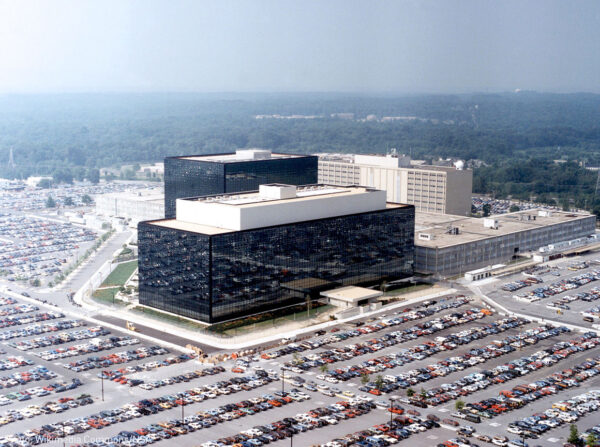
Court Case
Jan 2017
Privacy and Surveillance
ACLU v. NSA – FOIA Lawsuit Seeking Records of Government Use of Section 702 of FISA
Section 702 of the Foreign Intelligence Surveillance Act permits warrantless surveillance of Americans’ international communications, and the government has used that authority to seize and search the personal communications of Americans and others on an immense scale. In September 2016, the ACLU submitted a Freedom of Information Act request to several government agencies seeking basic information about how the government conducts surveillance under Section 702. In November 2016, we filed a lawsuit to enforce the request in the U.S. District Court for the Southern District of New York.
Explore case
Court Case
Jan 2017

Privacy and Surveillance
ACLU v. NSA – FOIA Lawsuit Seeking Records of Government Use of Section 702 of FISA
Section 702 of the Foreign Intelligence Surveillance Act permits warrantless surveillance of Americans’ international communications, and the government has used that authority to seize and search the personal communications of Americans and others on an immense scale. In September 2016, the ACLU submitted a Freedom of Information Act request to several government agencies seeking basic information about how the government conducts surveillance under Section 702. In November 2016, we filed a lawsuit to enforce the request in the U.S. District Court for the Southern District of New York.
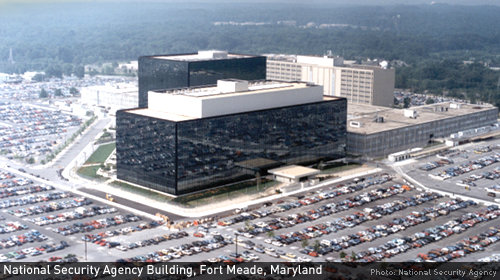
Court Case
Dec 2016
Privacy and Surveillance
Smith v. Obama – Challenge to NSA Mass Call-Tracking Program
The ACLU has joined a lawsuit brought by an Idaho nurse challenging the constitutionality of the National Security Agency’s mass collection of Americans' phone records.
Explore case
Court Case
Dec 2016

Privacy and Surveillance
Smith v. Obama – Challenge to NSA Mass Call-Tracking Program
The ACLU has joined a lawsuit brought by an Idaho nurse challenging the constitutionality of the National Security Agency’s mass collection of Americans' phone records.

Court Case
Oct 2015
Privacy and Surveillance
ACLU v. Clapper - Challenge to NSA Mass Call-Tracking Program
On June 11, 2013, the ACLU filed a lawsuit challenging the legality of the National Security Agency’s mass collection of Americans’ phone records. The complaint argues that the dragnet violates the right to privacy protected by the Fourth Amendment as well as the freedoms of speech and association protected by the First Amendment. The complaint also charges that the program exceeds the authority that Congress provided in Section 215 of the Patriot Act. In May 2015, the Court of Appeals for the Second Circuit ruled that the call-records program violates Section 215 of the Patriot Act. Weeks later, on June 1, 2015, Section 215 briefly expired for the first time since the passage of the Patriot Act in 2001. The next day, Congress passed the USA Freedom Act, which amended Section 215 to prohibit the bulk collection of Americans’ call records.
Explore case
Court Case
Oct 2015

Privacy and Surveillance
ACLU v. Clapper - Challenge to NSA Mass Call-Tracking Program
On June 11, 2013, the ACLU filed a lawsuit challenging the legality of the National Security Agency’s mass collection of Americans’ phone records. The complaint argues that the dragnet violates the right to privacy protected by the Fourth Amendment as well as the freedoms of speech and association protected by the First Amendment. The complaint also charges that the program exceeds the authority that Congress provided in Section 215 of the Patriot Act. In May 2015, the Court of Appeals for the Second Circuit ruled that the call-records program violates Section 215 of the Patriot Act. Weeks later, on June 1, 2015, Section 215 briefly expired for the first time since the passage of the Patriot Act in 2001. The next day, Congress passed the USA Freedom Act, which amended Section 215 to prohibit the bulk collection of Americans’ call records.
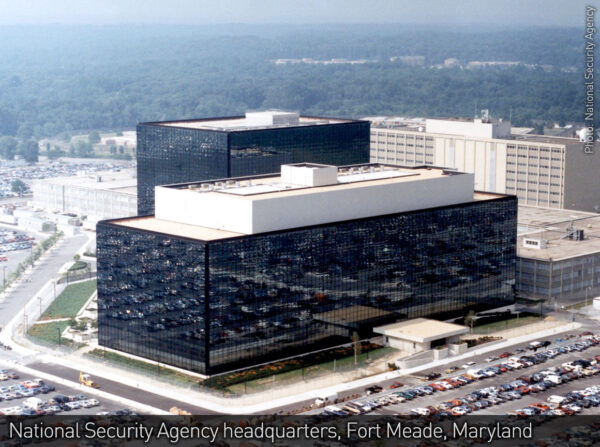
Court Case
Feb 2015
Privacy and Surveillance
Amnesty v. Clapper - Challenge to FISA Amendments Act
The Foreign Intelligence Surveillance Act (FISA), enacted by Congress after the abuses of the 1960s and 70s, regulates the government’s conduct of intelligence surveillance inside the United States. It generally requires the government to seek warrants before monitoring Americans’ communications. In 2001, however, President Bush authorized the National Security Agency to launch a warrantless wiretapping program, and in 2008 Congress ratified and expanded that program, giving the NSA almost unchecked power to monitor Americans’ international phone calls and emails. In February 2013, the Supreme Court dismissed the ACLU's lawsuit challenging the law.
Explore case
Court Case
Feb 2015

Privacy and Surveillance
Amnesty v. Clapper - Challenge to FISA Amendments Act
The Foreign Intelligence Surveillance Act (FISA), enacted by Congress after the abuses of the 1960s and 70s, regulates the government’s conduct of intelligence surveillance inside the United States. It generally requires the government to seek warrants before monitoring Americans’ communications. In 2001, however, President Bush authorized the National Security Agency to launch a warrantless wiretapping program, and in 2008 Congress ratified and expanded that program, giving the NSA almost unchecked power to monitor Americans’ international phone calls and emails. In February 2013, the Supreme Court dismissed the ACLU's lawsuit challenging the law.
